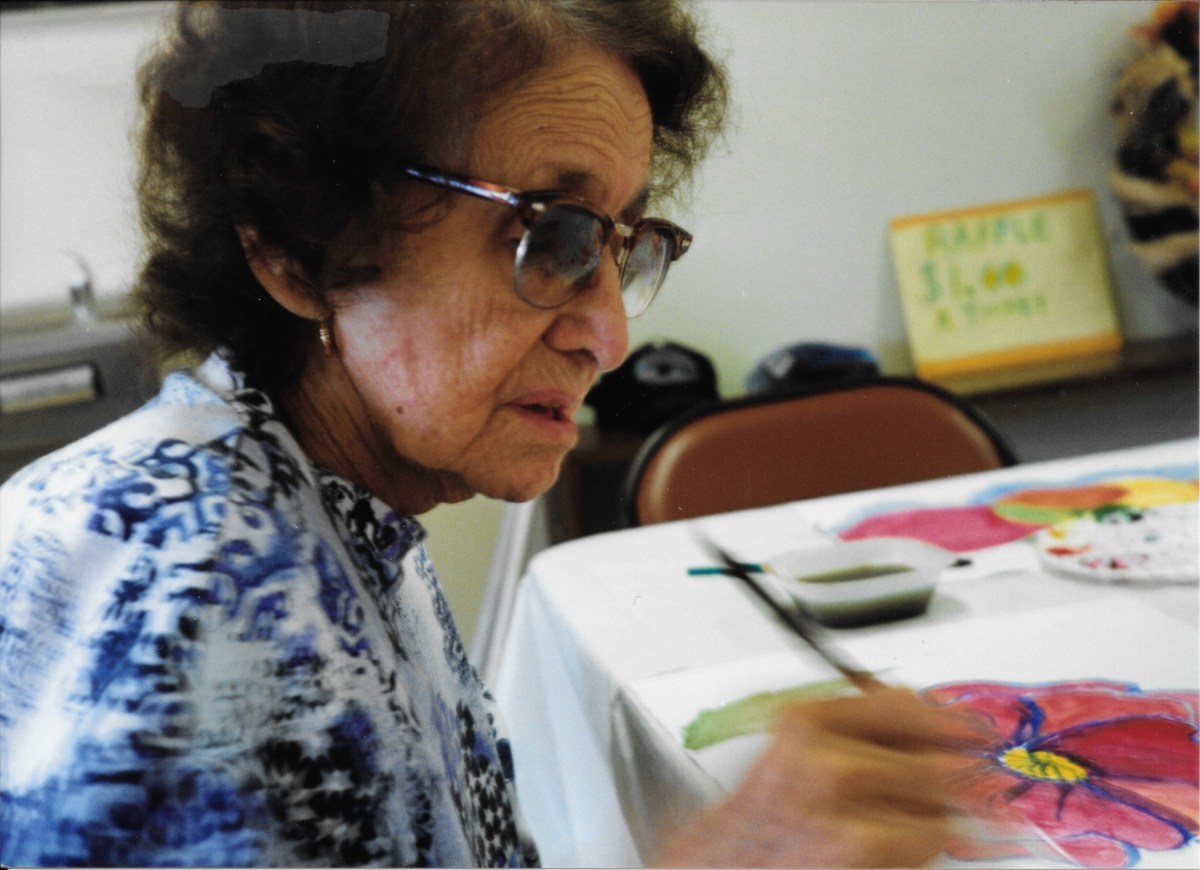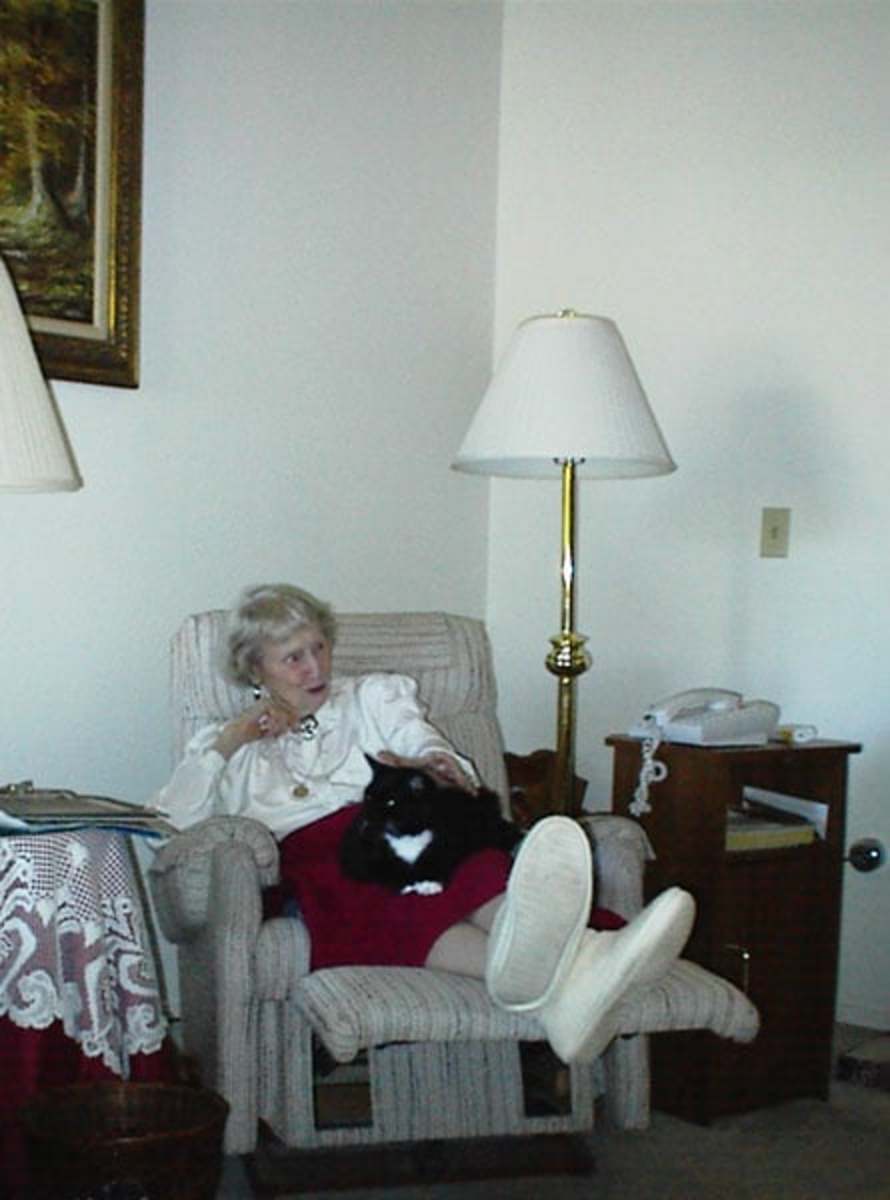How to Care for an Elder With Senile Dementia

Dementia is a disease that causes more than memory loss. It is a condition which affects a patient’s ability to reason and to learn. Over time dementia doesn’t just take away one’s memories, it alters their personalities too. When interacting with elders suffering from this heartbreaking disease, patience and a positive attitude are imperative for friends, family members and the caregiver. Having a sense of humor helps. Take the time to laugh about a certain predicament, but never directly at the patient.
What is Senile Dementia?
There are many kinds of dementia, all caused by various diseases and conditions. Senile dementia is a general loss of cognitive abilities occurring in seniors usually over the age of 65. According to the National Institute on Aging, one in seven people aged 71 and older have some form of dementia. Alzheimer's is the most common type of the disease. Vascular Dementia is the second most common. As baby-boomers continue to age, dementia is becoming increasingly prevalent in our society. Learn all you can now because it may soon be your loved one affected by this condition.
Test Your Knowledge
view quiz statisticsHelpful Tips When Caring for Dementia Patients
- Join a support group. This is vital for a loved one who is caring for the patient. There are even online support groups that are helpful to the caregiver.
- Engage the patient in various activities to offer social, mental and physical stimulation during the day.
- Be involved with the patient as he or she performs daily tasks as this helps keep self-esteem.
- Try to follow a structured daily routine. Dementia patients have difficulty dealing with change as it creates confusion. Having a routine lessens the patient’s defiance.
- Appreciate and compliment the abilities the person still has. Keep your expectations of what the patient can do realistic. If your expectations are in line, you can expect less frustration for you both.
- Dementia can bring on unwanted behaviors. Do not take this personally as it is the disease talking, not your loved one. If an elder says inappropriate things, it is best to redirect the conversation. Do not scold.
- Confusion, anxiety, loss of self-esteem, irritability and depression are all common. Keep in mind dementia patients have good days and bad days. Appreciate the good days and be more accepting on the bad days.
- Before asking the patient to do something, address him or her by their name. Break down all tasks into simple steps and give one direction at a time.
- Refrain from debating over the correct answer. Dementia patients are easily confused. Their timeframe and reality is different from yours.
- When you get frustrated, try not to blame the patient for your feelings. Dementia patients cannot change their behavior for you. Talk to a friend when you need to vent and try not to get angry at your loved one.
- Have the hard discussions early. Take the opportunity when your loved one is first diagnosed to discuss the patient’s wishes for long-term care and make those plans together. The reality will be devastating at first but it will be a comfort to the caregiver to know they are following the patient’s wishes as the disease progresses and the elder is no longer able to articulate his thoughts.
Communicating With Elderly Patients
When you are speaking with a loved one or a patient, speak slowly and distinctly using clear words. Since dementia patients have difficulty with auditory processing, realize the importance of sensory touch. A simple gesture of slowly touching a person’s hand is helpful. Use a calm and reassuring voice. Clearly ask only one question at a time and give the patient ample time to respond. Rushing an older person can increase confusion.
Sources of Information
- US Department of Health and Human Services, National Institute on Aging http://www.nia.nih.gov/health/publication
- Fisher Center for Alzheimer's Research Foundation www.alzinfo.org
- Alzheimer's Association www.alz.org
- Alzheimer's Society www.alzhemiers.org/uk
This content is accurate and true to the best of the author’s knowledge and does not substitute for diagnosis, prognosis, treatment, prescription, and/or dietary advice from a licensed health professional. Drugs, supplements, and natural remedies may have dangerous side effects. If pregnant or nursing, consult with a qualified provider on an individual basis. Seek immediate help if you are experiencing a medical emergency.






